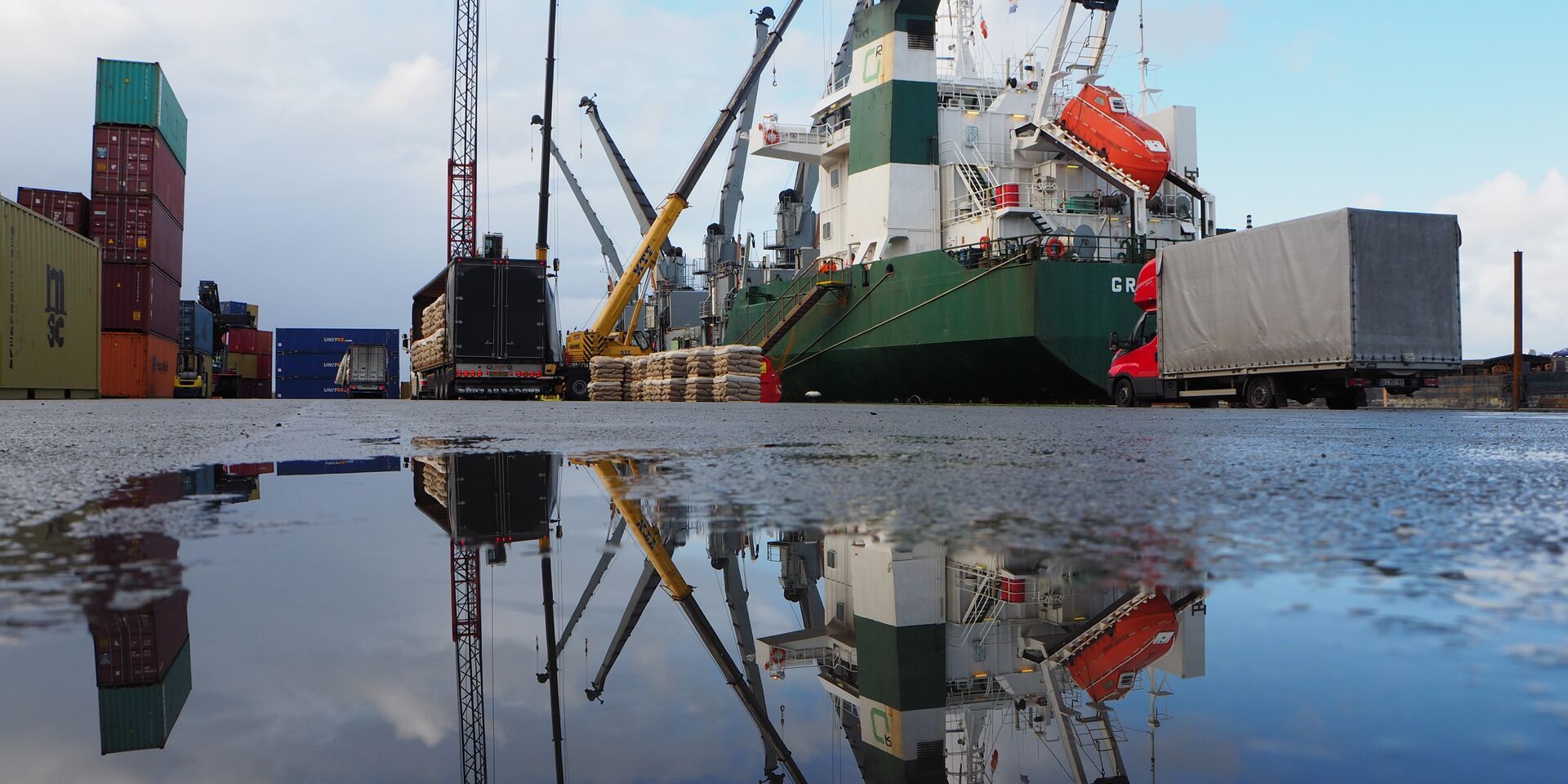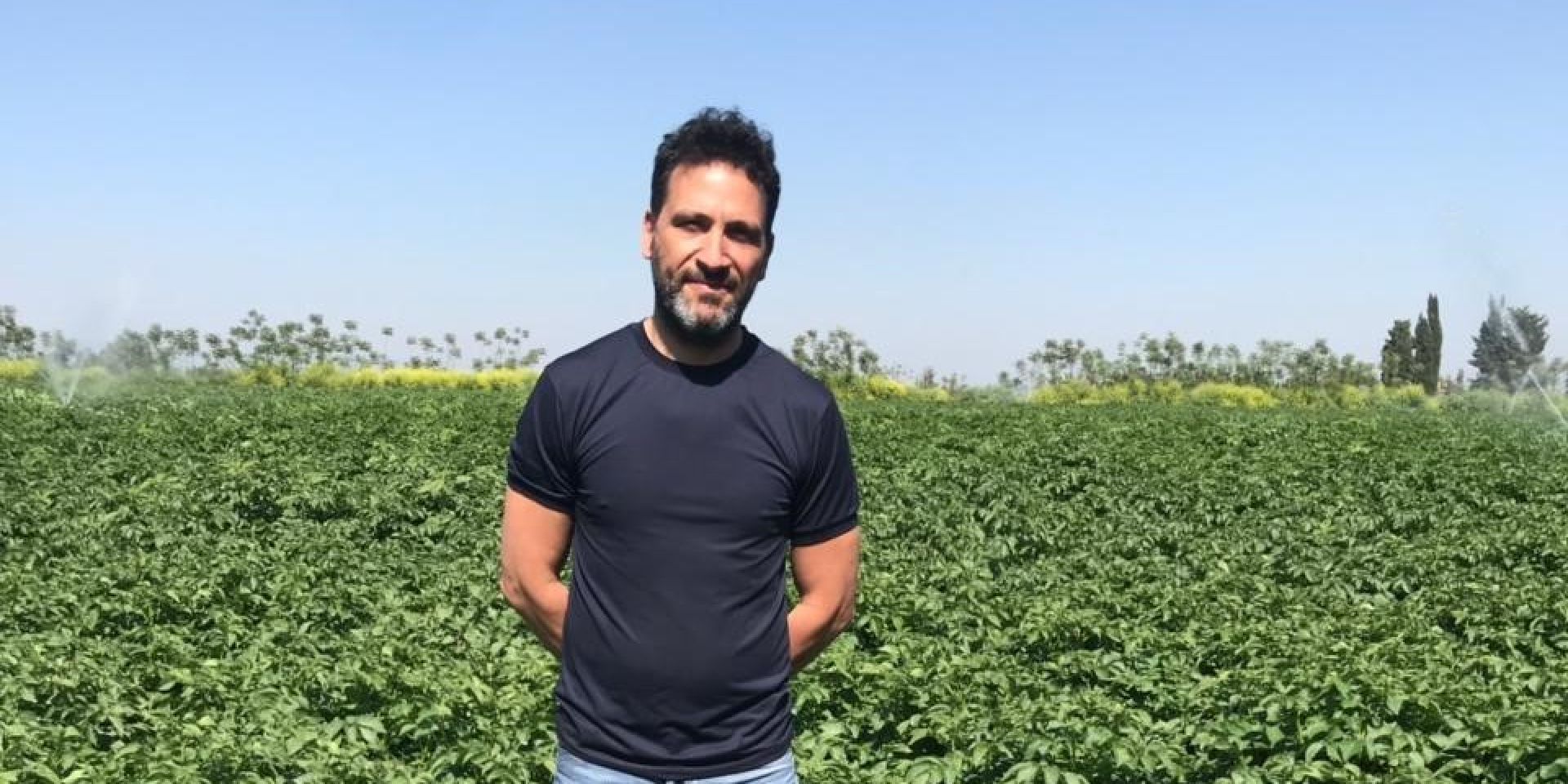Export
Everywhere and under all conditions we keep on delivering the best seed potatoes

Everywhere and under all conditions we keep on delivering the best seed potatoes
Providing an essential contribution towards food provision for the world is what drives us forward. With the export of seed potatoes, we carry on where others stop. We invest in smart technologies and weigh up how we can send seed potatoes to their destination most effectively. This means that, despite political unrest, wars and the consequences of Coronavirus, we continue to supply across the globe and expand our sales market wherever we see opportunities to do so.
Supporting global food provision is the very reason for our existence. We pull out all the stops to supply quality seed potatoes to as many countries across the world as we can. In our efforts, we do not exclude any population groups. This means that we do not shy away from supplying USA sanctioned countries even if that corresponds to the necessary risks. And although the United Nations (UN) and the European Union (EU) permit exports to these countries, international banking traffic may be subject to restrictions. European and American banks are often not allowed or simply refuse to receive money from sanctioned countries.
These two issues contradict one another and may form a threat to the supply of food. Based on our commitment to carry on supplying, for the past few years we have been seeking an alternative to cash flows via a bank in Lebanon. As a result of the situation in Lebanon since August 2020, however, we have been unable to transfer the hard currency in our bank account to Europe. The credit in these accounts has had to be written-off. This has had a direct impact on our net result for 2020/2021.
In 2020/2021 we expanded a trial of smart bigbags in collaboration with developer Niels Postma from Tapp.online. We sent no fewer than 1,100 bigbags, equipped with a label and chip, to Bulgaria, France, Italy, Portugal, Serbia, Spain and Turkey. With these, customers can use their smartphones to access growing advice and variety information in their own language. One hundred of these bigbags also contained a micro-sensor to read out temperatures so that we could gain insights into changing conditions during transport. Working with labels made of circular paper means this process and innovation is also sustainable. If this trial runs successfully, we will also examine sensors that measure air humidity and carbon dioxide levels. The smart bigbags have received global attention and won the bronze prize for innovation at Potato Europe 2021.


At the beginning of 2020, the United Kingdom left the European Union. Brexit became a reality. Until June 2021, HZPC could still supply seed potatoes from the European Union to the United Kingdom and vice versa. As of 1 July 2021, this is no longer possible. We hope that a treaty will be set up between the United Kingdom and the European Union so that it is once again possible to import and export seed potatoes.

The outbreak of the Coronavirus in China has disrupted container transport worldwide. As a result, sailings have been cancelled and prices have risen dramatically, e.g. for the transport of seed potatoes to the Middle East and North Africa. HZPC has been able to partially resolve these issues by securing a fixed number of containers per sailing very early on and consequently guaranteeing deliveries early in the season.

Agent HZPC in Libanon
Until 2019, Lebanon had a robust banking system and doing business there was relatively easy. Almost too easy, in fact. Now, our country is facing a crisis and all bank accounts have been frozen. This means that nobody can access their bank accounts or make financial transfers. The government made this decision on the basis of the economic crisis and demonstrations in 2019. The population began to panic and take their money out of the banks and the government decided to stop this process. The country has had no effective government for around six months. We are at a complete impasse.
As a representative of seed potatoes from HZPC in Lebanon, this means that my work has become considerably more complicated. There are no restrictions on imports and exports but in order to import seed potatoes, you need a lot of money. We used to import around 17,000 tons of seed potatoes to Lebanon. The payment of these potatoes is very difficult because the banking system is functioning very poorly as a result of the crisis in Lebanon. This requires a lot of time and energy on my part. At the end of the day, I have to make sure that the customers do pay, so that there will still be potatoes produced in Lebanon in the future to feed the people.
We also face challenges in relation to the exchange rate for the Lebanese pound. If you want to import, you need dollars or euros. These are extremely hard to come by and the exchange rates increase dramatically. There was also a period during which I couldn't even access my house due to demonstrations and roadblocks. Luckily, last season things improved.
I am, of course, concerned but in Lebanon we are accustomed to problems. I understand this is a complex situation which can't be resolved easily. If we can find our way out of this with a new government, the country will recover quickly.
The potato is the most important crop in Lebanon. And it is even more important in Lebanon at times like these.
I really struggle to buy seed potatoes now. But people will always plant seed potatoes because it is the most important crop in Lebanon. It is even more important in Lebanon at times like these. This year, we also exported fewer potatoes because Lebanese potato consumption increased. The potato is still affordable even though other foods have become too expensive for many.
My company has a great reputation and loyal customers. I also really enjoy working with a major, trustworthy player, such as HZPC. The market is stable and traditional here. Many things are still the same as they were thirty years ago. Spunta has always been the most important and successful variety but more and more growers are working with other, new varieties such as Farida and Hermosa. Our potatoes are famous in Lebanon, due to their great flavour. So I feel positive about the future.